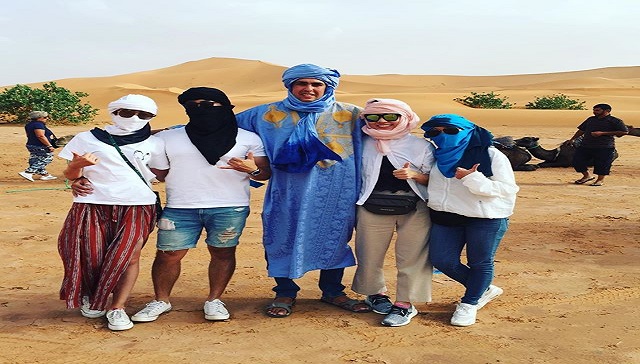Morocco is a truly delightful country to discover. Charming ruins, pristine beaches, enchanting palaces, picturesque streets and bustling medinas are all a part of what makes the country so diverse and wonderful to explore.
But, as with any other North African, Muslim country, life in Morocco is very different from that in the West and that may raise some safety concerns for travellers. In the various sections below, we cover the main safety issues in Morocco while offering plenty of practical and easy solutions to help you deal with them during your stay.
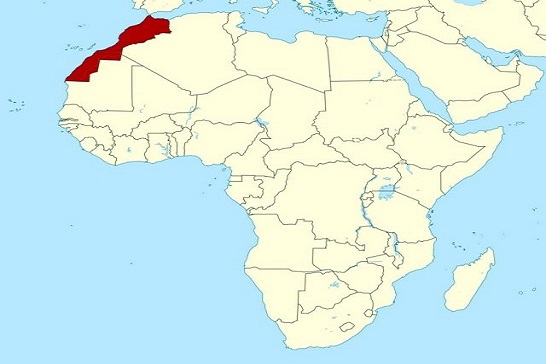

Health Concerns
Health does not need to be a main concern for those looking to travel to Morocco. As a virtually malaria-free country, you do not need to worry about mosquito bites, but you can take the usual precautions to stay safe (i.e. wearing lightly-colored clothes, using insect repellent in the warmer months, etc.).
There are also no required vaccines to enter the country but you are advised to have your polio and tetanus vaccines in order. If you like to be as safe as possible, having the Typhoid and Hepatitis A (and even Hepatitis B) vaccines are recommended.
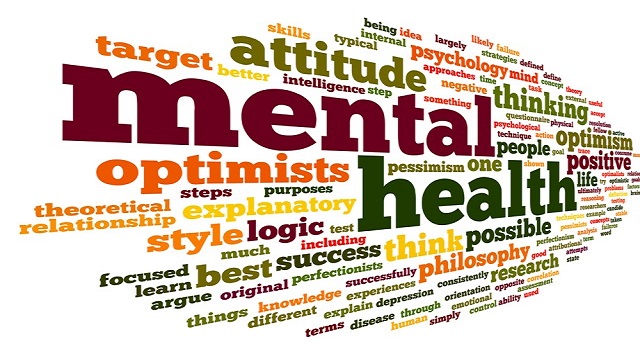
Food and Water Safety
As with any other foreign country, the local food (and especially street food) is not always cooked in the same conditions your stomach is used to. For that reason, be aware of where you choose to try street food. Generally, the Jemaa el-Fnaa in Marrakesh, Skala du Port in Essaouira and Port in Agadir are safe places to try Morocco’s local flavors.
Many guidebooks recommend only drinking bottled water. However, most water from taps are safe to drink as cistern systems are well maintained (and are relatively new) throughout the country. While drinking bottled water is OK, our team has partnered with an international organization called TAP. We suggest that you bring a small filtering mechanism or a Steri-Pen with you to treat water as you consume it. We also advise travellers to not eat uncooked vegetables or fruits that you haven’t washed yourself or cannot peel in order to avoid an upset stomach during your travels.
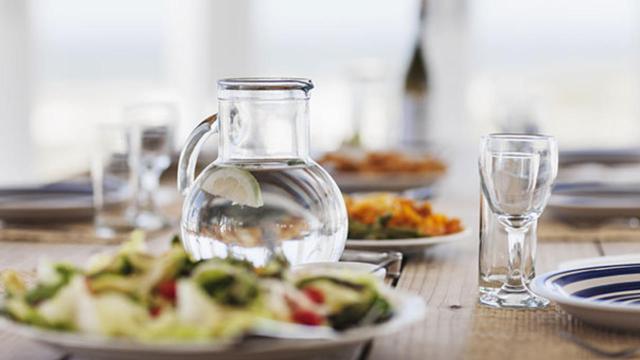
Crime in Morocco
In general, crime does not pose a significant threat to the outlook of tourism to Morocco; although petty crimes such as pick-pocketing and bag snatching are more common in crowded areas. Hustlers and con artists also target tourists. The most sensible way to avoid them and keep on enjoying your time in Morocco is to politely refuse their services and to be sensibly guarded against strangers.
The biggest concern for a tourist in Morocco is the popularity of faux guides. Although these have decreased in number due to the great work of the Brigade Touristique, there are still many opportunistic men roaming the streets of popular hotspots waiting for the perfect traveler to con. But there are some effective ways to spot faux guides, as they tend to use some these tactics or similar:
- Many will pretend they are students when they approach you and tell you that they just want to practice their English and learn about your culture. Invariably, if you follow them, you will end up in some kind of shop where you may feel pressured to make a purchase.
- Others may approach you asking for help translating something into English and, again, during the conversation, they will lead you to a shop.
- When they lead you to these shops, the vendors may offer a “free gift”. Do not accept it, as a group of people will be waiting to approach you, accuse you of stealing and extort the price from you.
- Faux guides will always tell you that everything and everywhere is “closed” as a con to get you to follow them instead.
At bus or train stations, faux guides may also tell you that there have been cancellations or that you won’t be able to catch the specific bus or train you are waiting for as a way to get you to accept a high taxi fare.
When you do spot a faux guide, hustler, or con artist trying to trick you, here are some of the best ways to avoid him without causing any trouble:
- Avoid eye contact and ignore them. This will usually suffice to discourage them.
- If eye contact happens, just ignore them and walk away.
- If they continue to approach you, walking away swiftly but politely is an effective way to avoid them.
- If they are persistent, don’t be afraid to simply say no. You can opt for saying “La” (the Arabic word for “no”) to avoid revealing your native language.
- In all cases, ignoring touts and faux guides is the best option in all cases. If you talk to them, then they have already succeeded in their first step.
In general, to be safe, it’s best to simply never accept the services of people who approach you and avoid eye contact when you see someone drawing near. Once these men start talking, it can be hard to get rid of them as this is their way of making a living. A firm and strong “no”, however, can do wonders.
Beware that the majority of crimes against tourists is main tourist locations in cities such as Marrakesh, Casablanca, Tangier, Fez, and Rabat. Pay close attention to these tips especially when visiting those areas.
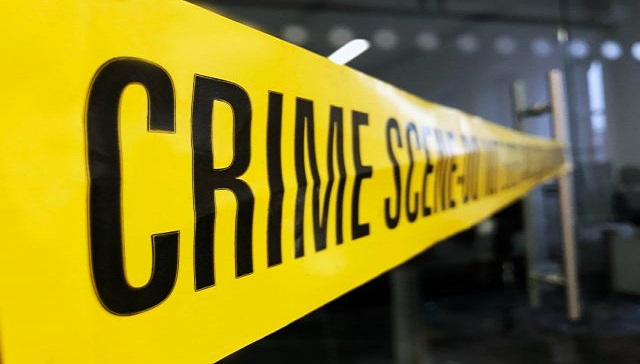
Drugs
For centuries, people have been enjoying hashish, or kif as it is called locally, in Morocco. Especially in the Rif Mountains, where the majority of the cannabis is grown, it is not uncommon to find men smoking hashish. However, despite the somewhat commonplace practice of smoking kif in the country, the drug is illegal and the penalty for breaking the law can include up to ten years imprisonment in a not-so-friendly Moroccan jail.
As cannabis has become a multi-million dollar industry, the government has not taken serious action to disband the drug business and those who are most often penalized are foreign travellers smoking on a street or being careless when buying from an undercover police officer.
If you happen to find yourself in the latter situation, see if you can pay a fine on the spot. If you cannot avoid going along with the police to a local station, avoid signing papers you do not understand, ensure you have a competent translator and lawyer, and contact your embassy as soon as possible. If you are given a court date and are set free, consider leaving the country.
Civil Unrest and Terrorism
Civil unrest is uncommon in Morocco. Between 2011 and 2012, some peaceful demonstrations gathered tens of thousands of people nationwide but violence between police and protesters was sporadic.
Domestic terrorism incidents were a more serious concern at the beginning of the millennium but have also become more rare as Moroccan security services increase their emphasis on finding and arresting potential terrorist cells before they become operational.
Generally, world governments have emphasized to keep caution when traveling to Morocco, which is essential in any country you are visiting. This advise is often so general and vague that it doesn’t truly provide insightful information. Moroccans as a population do not wish to have any political instability and while they do criticize the government in various ways, most Moroccans support the modern, progressive king, Mohamed VI. So, politically, Morocco is very stable and has been a fine example of solidarity in the region for decades. Of course, in any country, isolated incidents can occur (as in the US, France, and other countries), but if an incident occurs in a Muslim country, it tends to stand out and become immediately labelled as unstable.
In reality, like most of the world, Moroccans are a peace-loving people and will stand strong together against any group or individuals who attempt to dismantle peace. Officials and Moroccans in general are doing a very good job at keeping the country safe. Each country of the world is very different in terms of its relation to the other and an uprising or terrorist events in Algeria, Tunisia, or even France have hardly impacted Morocco’s stability. We encourage travellers to think outside of the box, trust our on-the-ground team to access current issues (whether ebola, events in France, Tunisia, or in Boston, among other perceived threats) that may be explored/exacerbated by the media which may not pose any real threat to travellers coming to Morocco. And, if an incident does occur, it’s mostly single individuals who are able to go undetected and slip through the cracks to accomplish their demented goal.
As an American, Canadian, or European (or in fact, from anywhere), you’ll be welcomed to Morocco by honest, friendly, and open-hearted Moroccans. You will not be targeted or singled out for acts of terrorism. We believe that large buses of tourists are slightly more at risk (albeit extremely low) than the more intimate, private trips to Morocco that we organize. With our drivers, guides, and local professionals, you are in the best of hands. We take our commitment to providing you with an amazing, safe, and unique experience seriously and ask as much from our travellers; that you trust we’ll be doing the best job we can. The entire world is hard to predict. Through thick and thin, we are carrying on as normal, with heightened awareness, but without fear. For travellers and the population, Morocco is a very safe country to travel and to live.
Road Safety
Road quality in Morocco varies throughout the country and throughout the year. From high-speed toll roads to secondary roads which may be more poorly maintained, the safety of the roads depends on the season as heavy rains or snow can create more dangerous driving conditions.
Drivers are known to be more erratic and all kinds of vehicles, from bicycles to donkey carts, are legally allowed to share a road. Traffic accidents are a major concern in Morocco so it is essential to be as careful as possible when driving around the country.
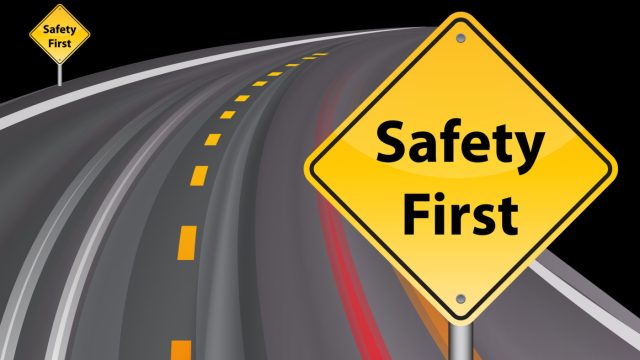
Is it Safe for Kids to Travel in Morocco?
Moroccan society is a very family-oriented one and you will be sure to witness that especially when you travel to Morocco with your family and young children. Family is the priority for Moroccans and children are typically spoiled rotten by elder relatives, being able to stay up later than is customary in the West and allowed to play freely indoors and on the streets.
When you travel with your little ones, you may then notice a friendlier attitude from the locals with people frequently coming up to you and admiring your children, affectionately caressing or possibly kissing their cheeks, inviting you in to their shops and cafés, and even offering free tea. This is all friendly behaviour and you should not feel uncomfortable or unsafe about it. Morocco has an extremely child-friendly culture and bringing your little ones along on your journey may even be an advantage for you to interact with the locals and explore the Moroccan way of life first hand.

Is it Safe for Women in Morocco?
There is no doubt that for women traveling in Morocco it is different than traveling to a Western country. In Morocco, gender roles are much more defined and the traditional views of a patriarchal society are quite prominent which means women will have to take extra precautions when discovering the colourful streets of Morocco.
Moroccan men have very little contact with women outside of their family growing up and that coupled with their misconceptions of Western sexuality (very much fed by their easy access to internet pornography) can sometimes lead them to misinterpret the actions and behaviours of Western women. Cat-calling and some lewd comments can be targeted frequently to both Moroccan and foreign women and the best response is to simply ignore those remarks. It is rare for things to be taken a step further, but if sexual harassment becomes physical, feel free to respond how you would at home: screaming, yelling and calling for help are all acceptable and helpful ways to react. This will not only shame your aggressor but also alert locals who will rush in to help you (especially if you yell out “Ha-Shooma!” which means “Shame on you!”). Whenever possible, report the harasser to the local Brigade Touristique.
Some practical tips for women traveling to Morocco include:
- Use common sense: Although this applies to almost any kind of international trip, it is especially fitting for women traveling in Morocco. Be sensible, try to adhere to most local customs and do your research before traveling to be as informed as possible.
- Dress modestly: Wear covering that covers the knees and shoulders. If you are comfortable with it, wearing a headscarf, even in the larger cities, can also help to avoid those types of uncomfortable situations.
- Look confident: When walking through the busy medinas (old city centres), a look of confidence and purpose in your eyes as opposed to one of disorientation can help to deter young men from harassing you.
- Behave appropriately: Men and women have very strict codes of interaction. In general, avoid intense eye contact and especially any kind of touching as this can be considered a come-on for Moroccan men.
- Mention your “husband”: If things start to feel uncomfortable when you are talking with a Moroccan man, casually mention your “husband” who is just around the corner. No matter who your male travel buddy is, introducing him to others as your husband will help to safeguard you against unwanted harassment.
- Keep your cool: Ignoring the sexual remarks can be difficult especially for women who have not had to deal with such behaviour before, but the best way to handle the situation is to keep a calm attitude. There is no reason to be afraid and it would be a shame to let an unpleasant situation ruin your whole trip.
Although Morocco remains a conservative country with respect to gender roles, change is occurring. Many women today don’t wear a full facial veil and while some opt for a simple headscarf other young women can be seen drinking alcohol in up-scale bars with a mixed-gender group of friends. However, rural areas are still more conservative than cosmopolitan cities such as Marrakesh and Fez so it is advisable to follow the tips above to avoid uncomfortable situations.
Traveling through Morocco (as you continue reading over our blog) can be a more challenging experience for women as opposed to men. Nonetheless, the fear of sexual harassment occurring is not a reason to avoid a trip to this wonderful country. It may or may not happen to you but remembering the fact that neither Islam nor any respectable Moroccans condone sexual harassment will help you see that the situation is not that threatening after all.
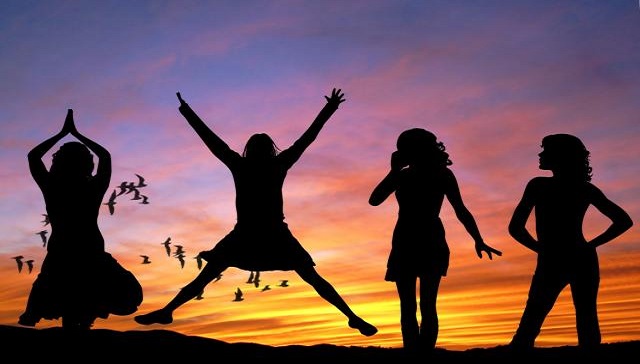
Is it safe for Jewish Travelers in Morocco?
Morocco has always been a culturally diverse country and, since its earliest beginnings, many different people have called its land home. Although today it is a majority Arab Muslim country, Jewish and indigenous Berber populations actually predate the Arab immigration and have greatly contributed to Morocco’s history, leaving behind a fascinating heritage that can still be felt today.
For centuries, Muslim, Jewish and Berber populations coexisted peacefully and in respect of their different religions, customs and traditions. Indeed, just half a century ago Morocco was home to the largest Jewish population in the Arab world with over half a million Jews living freely in the Moroccan Kingdom. Today, only some 2,500 remain but their legacy is far from forgotten.
In fact, it’s not difficult at all to find remnants of the historical Jewish presence in Morocco. Whether it be in the fascinating Mellahs (Jewish quarters) that have survived in the country’s grandest medinas for centuries, or in the only Jewish heritage museum in the Arab world set in cosmopolitan Casablanca, Moroccans take pride in their Jewish heritage and recognize its importance in their country’s history.
Above all, Morocco has always strived to be a place of acceptance. Today, that same acceptance remains making it perfectly safe for Jewish travellers to visit and get to know this country’s incredibly diverse history.
What about the LGBT Community in Morocco?
In general, LGBT travellers to Morocco are another group of people who need to take some precautions while exploring the country.
In theory, homosexuality is illegal in Morocco. In practice, however, the application of this law varies throughout the country and poses no real threat to gay travellers to Morocco. Homosexuality is not uncommon in Morocco but it is largely unacknowledged and it is almost completely unacceptable among women. Nonetheless, police will never get involved if the homosexual couple is foreign but will generally intervene if one of the partners is a Moroccan citizen.
Some practical tips for LGBT travellers include:
- Be informed: Before traveling anywhere, it’s always important to be aware of which LGBT rights exist at your destination. This will help you to also get a sense of the local attitude and tolerance toward the LGBT community.
- Be discrete: Public displays of affection are strictly frowned upon between heterosexual couples and even more so between gay or lesbian couples. Although it can be common to see Moroccan men holding hands, this is interpreted as a sign of friendship and nothing more. Moroccan men know, however, that hand-holding between Western men means greater intimacy so this too is discouraged in public.
- Get to know the locals: Although Morocco in general is a conservative and religious country, some places are more so than others. Thus, getting to know the local community is extremely important as this will let you know how to adapt your behaviour in public to respect local beliefs and codes of behaviour.
- Opt for foreign-owned accommodation: If you are concerned about the possible reaction of a Moroccan company to your booking a shared room for you and your partner, you can always opt to stay in foreign-owned hotels or riads. That way, you will know for sure that your stay will be treated with normality and the appropriate respect.
- Book with a special LGBT travel agency: There are plenty of travel agencies that cater specifically to the concerns and special needs of the LGBT travel community in Morocco. At Journey Beyond Travel, we can help you customize a unique experience in Morocco where you can discover the local culture while staying safe and hassle-free.
Despite the seemingly hostile environment toward the LGBT community in Morocco, the truth is that locals will usually be tolerant so long as you respect the local customs. For this reason, Morocco remains a popular destination for LGBT travellers from all around the world with cities like Tangier (allegedly the world’s first gay resort), Marrakesh, and Agadir especially attracting the homosexual community. With beautiful beaches and even a small gay scene at bars and clubs in these cities, there are plenty of places that are open to gay, bi, lesbian and transgender travellers in Morocco.
Who to Contact in an Emergency
In the case that a misfortune does occur during your stay in Morocco and you do become a victim to a crime (whether it be a faux guide, sexual harassment or theft), the simplest way to get help is to reach the Tourist Police. In popular urban centres, it’s quite easy to find one in just about every corner but you can usually also ask at your hotel for information on the nearest police office. In emergency situations, you can dial 19 to reach the police in urban areas, 177 for the Royal Gendarmerie (the police force in rural areas), and 15 for an ambulance or firemen.
It’s also a good idea to always have the address and contact number of your national embassy in Morocco so you can quickly get in touch if needed.
How safe is Morocco ?
In general, Morocco is a safe country to explore. Moroccans are well known for being a hospitable and tolerant people which makes traveling through the country a much more enjoyable experience. That said, the conservative nature of the local culture does mean that traditional customs should be respected in public in order to avoid less desirable situations. As with many other countries, tourists are a special target of pick-pockets and faux guides so being aware of your surroundings and belongings is general common sense.
There is no need to be afraid of traveling to Morocco. Staying calm, looking confident and brushing off the occasional cat-call are all much more positive attitudes which, in the end, will help make your stay in Morocco one you will remember for all the right reasons.
